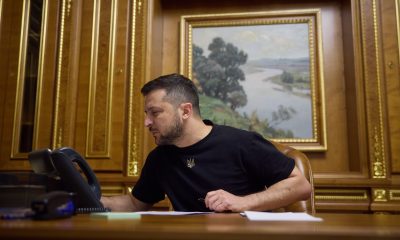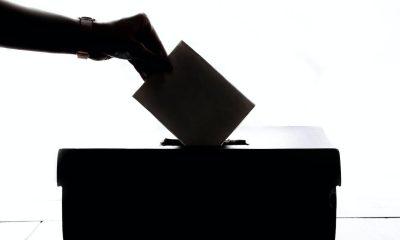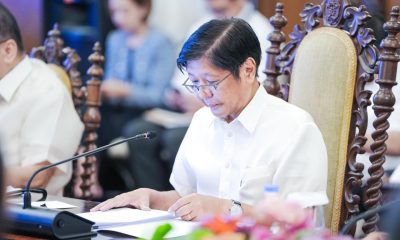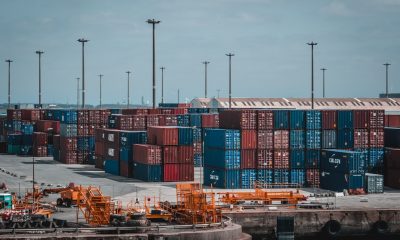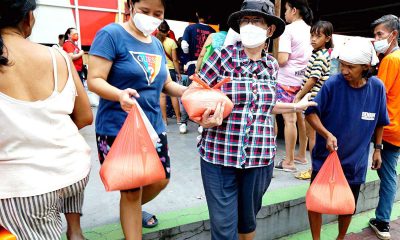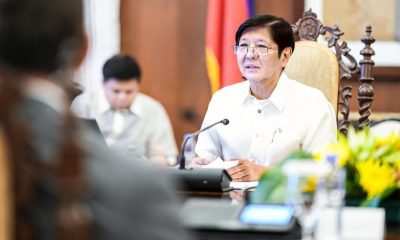News
Peru ponders corruption probe’s cost after shocking suicide
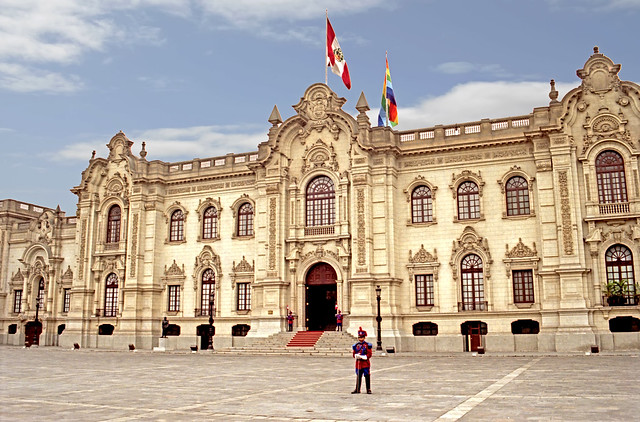
FILE: Peru’s Government Palace (Photo by Dennis Jarvis/Flickr, CC BY-SA 2.0)
LIMA, Peru — The suicide of former President Alan Garcia has shocked Peruvians and sparked a debate swirling Thursday on television channels and in newspaper columns: What will be the price of the country’s painful reckoning with corruption?
All but one of the nation’s living elected former presidents are suspected of taking part in Latin America’s largest graft probe, in which Brazilian construction giant Odebrecht has admitted to doling out nearly $800 million to politicians throughout the region in exchange for lucrative public works contracts.
The case has especially rocked Peru, which has gone further than any other country outside Brazil in holding politicians suspected of participating in bribery accountable.
Corruption has long been endemic in the South American nation, where one judge was even caught on a wiretap negotiating the sentence of a man accused of sexually assaulting a young girl. Many are pleased to see powerful leaders long suspected of wrongdoing with handcuffs around their wrists.
Still, Garcia’s death has prompting a closer scrutiny of how the cases are being conducted, in particular the issue of pretrial detention.
When officers showed up at Garcia’s home early Wednesday, they came armed with an arrest warrant demanding his detention in connection with the Odebrecht case, in which he was a suspect but not yet charged. He asked for a minute to call his lawyer and then shot himself from inside a bedroom.
Now some ask: In a country where corruption has long gone unpunished, have prosecutors become overzealous in putting the nation’s most prominent politicians behind bars even before charges are levied against them?
“The fight against corruption is good,” Peruvian television host Paola Pejoves opined as images of Garcia’s hearse flashed across the screen. “But at what cost?”
Prosecutors and anti-corruption advocates say preliminary detention is needed in the case of powerful leaders with access to great resources that could help them flee the country or obstruct justice. Critics say prosecutors aren’t always justified in putting them behind bars before filing charges.
Throughout Latin America, it’s common for prisoners, even those accused of petty crimes, to be held for months or years before being charged. It’s a system human rights lawyers have clamoured against for years, and is now getting more attention as former presidents find themselves in a similar position.
Garcia would have been just another in a string of high-profile leaders ordered held on preliminary detention in the Odebrecht scandal.
Eighty-year-old former President Pedro Pablo Kuczynski is being held in connection with the probe, as is former first daughter Keiko Fujimori. Ex-President Ollanta Humala and his wife were also held for months without any formal charges until Peru’s constitutional court ruled they should be freed.
Under Peruvian law, those suspected of crimes that carry a sentence of greater than four years can be held if there is evidence to suggest a suspect might try to flee the country or obstruct the course of an investigation.
Of all the former Peruvian presidents caught in the Odebrecht probe, the case for detaining Garcia may have been the clearest cut. He tried to seek asylum in Uruguay’s embassy four months ago, but his bid was rejected.
That may have been grounds to suggest he might try to flee, some attorneys said, though cases like Kuczynski’s remain more ambiguous.
“He’s 80,” lawyer Carlos Caro told TV Peru. “Where is he going to go?”
Garcia twice led the nation and was reviled by many Peruvians while adored by others, who at his peak called him the John F. Kennedy of Latin America.
Prosecutors suspect him of taking bribes from Odebrecht during the construction of Lima’s metro.
The larger-than-life former president repeatedly professed his innocence, going on camera just a day before his death saying that history would favour him.
“Years will pass and people will understand,” he said. “I trust in history.”
Those critical of the use of pretrial detention in corruption cases say prosecutors are using it to garner public approval: The footage of officers escorting a former president into jail is powerful in a country where people are accustomed to seeing corrupt leaders go unpunished.
But it’s also potentially damaging to those who are never charged.
“I think they have a lot of evidence in hand,” said Jose Ugaz, an attorney who oversaw the prosecution of former strongman Alberto Fujimori’s intelligence chief on corruption charges and is now representing Kuczynski’s secretary, who is also detained. “But as tends to happen in complex investigations . some errors have happened.”
Others, like law professor Ernesto de la Jara, contend politicians and business leaders, who often have access to resources like offshore accounts, merit stricter measures than the common criminal.
“It’s another matter entirely to evaluate the need for preliminary detention when facing cases of organized crime where there are ex-presidents, Congress leaders,” he said.
The Inter-American Commission on Human Rights expressed concern in a 2017 report about Peru’s policy of allowing pretrial detention for as much as 36 months in the case of public officials suspected of corruption and organized crime. Previously, authorities could only hold those suspects for up to 18 months.
The study found that in Latin American countries, on average 36 per cent of the prison population consists of people being held in pretrial detention. In the case of Peru, de la Jara said about half of all prisoners are behind bars as a preliminary measure.
“Curiously enough, now that powerful politicians or wealthy businessmen are subject to that same kind of treatment, now all of a sudden this issue is being debated,” said Jose Miguel Vivanco, director of the Americas program for Human Rights Watch.
Peru’s El Comerico newspaper, which has been critical of the use of pretrial detention, called Garcia’s death “the most tragic episode” yet in the Odebrecht probe, but insisted on the need for the broader case to proceed.
“We shouldn’t lose sight of the importance of continuing cases under way,” it wrote Thursday. “It’s vital for truth to be told and justice executed to break with a past of impunity so that in the future no citizen is held above the law.”
———
Armario reported from Bogota, Colombia.








